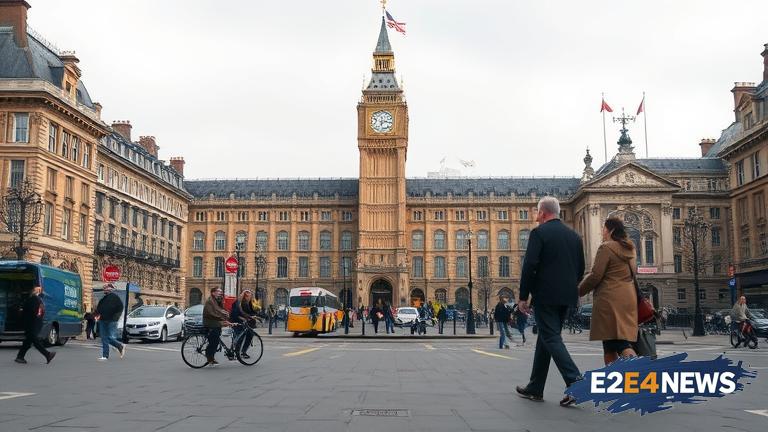The UK government has taken a significant step towards addressing the long-standing issue of age-based minimum wage discrimination. The move comes after years of campaigning by advocacy groups and trade unions, who argue that the current system is unfair and perpetuates inequality. The government has asked the Low Pay Commission to consult on the possibility of abolishing the minimum wage age bands, which currently see younger workers paid less than their older counterparts for the same work. The consultation is expected to be completed by the end of the year, with any changes potentially coming into effect in 2024. If the age bands are abolished, it could mean that all workers, regardless of age, would be entitled to the same minimum wage. This would be a major victory for young workers, who have long argued that they are being unfairly penalized for their age. The current system sees workers under the age of 18 paid just £4.62 per hour, while those between 18 and 20 are paid £6.56 per hour. Workers between 21 and 22 are paid £8.36 per hour, and those over 23 are paid the national living wage of £9.50 per hour. The age bands have been in place since the introduction of the minimum wage in 1999, and have been the subject of much controversy over the years. Critics argue that the bands are discriminatory and perpetuate inequality, while supporters argue that they are necessary to reflect the different costs and responsibilities associated with employing workers of different ages. The government’s decision to consult on the issue has been welcomed by advocacy groups and trade unions, who see it as a major step forward in the fight for fair pay. However, some businesses have expressed concerns about the potential impact on their bottom line, arguing that abolishing the age bands could lead to increased costs and reduced employment opportunities for young workers. Despite these concerns, the majority of experts agree that abolishing the age bands would be a positive move, and would help to reduce inequality and promote fairness in the workplace. The consultation will consider a range of options, including abolishing the age bands altogether, or introducing a new system that would see workers paid a higher minimum wage based on their experience and qualifications rather than their age. The government has also announced plans to increase the national living wage to £10.50 per hour, which would see millions of workers receive a pay rise. The move is part of a broader package of measures aimed at promoting fair pay and reducing inequality. The government has also pledged to increase funding for apprenticeships and training programs, in an effort to help young workers develop the skills they need to succeed in the workplace. The consultation on the minimum wage age bands is expected to be highly contentious, with both sides of the debate likely to present strong arguments. However, with the government committed to promoting fairness and reducing inequality, it seems likely that some form of change will be implemented in the near future. The impact of the changes will be closely watched, and will likely have significant implications for workers, businesses, and the wider economy. As the consultation gets underway, one thing is clear: the UK government is taking a major step towards addressing the issue of age-based minimum wage discrimination, and promoting fairness and equality in the workplace. The move has been welcomed by workers and advocacy groups, who see it as a major victory in the fight for fair pay. The government’s commitment to promoting fairness and reducing inequality is a positive step, and one that will likely have significant implications for the future of work in the UK. The consultation will provide an opportunity for all stakeholders to have their say, and to shape the future of the minimum wage in the UK. With the UK economy continuing to evolve and grow, it is essential that the government takes steps to promote fairness and equality, and to ensure that all workers are paid a fair wage for their work. The abolition of the minimum wage age bands would be a major step forward, and would help to promote fairness and reduce inequality in the workplace. It would also send a strong message that the government is committed to promoting the rights and interests of all workers, regardless of their age. The consultation is a major opportunity for the government to make a positive impact, and to promote fairness and equality in the workplace. The outcome of the consultation will be closely watched, and will likely have significant implications for the future of work in the UK. The government’s decision to consult on the issue is a positive step, and one that will likely lead to significant changes in the way that the minimum wage is structured. The move has been welcomed by workers and advocacy groups, who see it as a major victory in the fight for fair pay. The government’s commitment to promoting fairness and reducing inequality is a positive step, and one that will likely have significant implications for the future of work in the UK.





